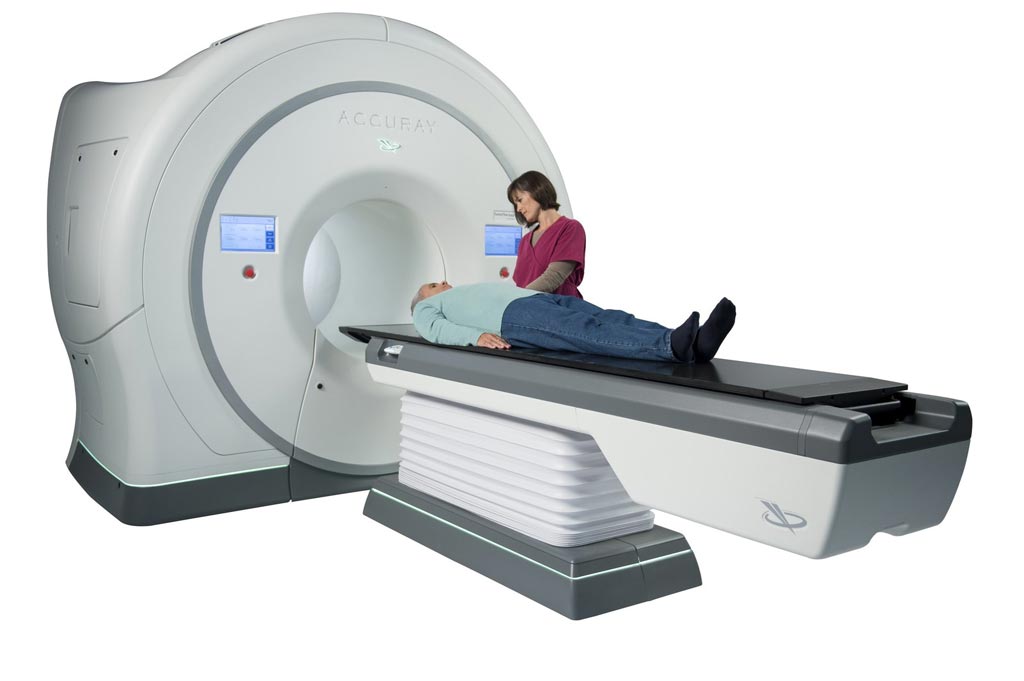Study Shows IMRT Better for Head and Neck Cancer
By MedImaging International staff writers
Posted on 31 Jul 2017
A prospective, multi-center study has shown that IMRT cancer therapy provides a significantly improved cancer-specific survival rate, as well as improved post-treatment salivary function compared to volumetric modulated arc therapy.Posted on 31 Jul 2017
Fourteen radiotherapy centers in France took part in the study comparing cancer-specific survival rates, and local cancer control rates, using Intensity-Modulated Radiation Therapy (IMRT), and volumetric modulated arc therapy. This is the first prospective study to compare clinical outcomes between radiation therapy platforms.

Image: The TomoTherapy system being used to treat a patient (Photo courtesy of Accuray).
The results of the study were announced by Accuray (Sunnyvale, CA) and were published in the June 26, 2017, issue of the International Journal of Radiation Oncology – Biology – Physics. The researchers compared the Accuray TomoTherapy IMRT, and the Varian Medical Systems (Palo Alto, CA, USA) RapidArc systems in their study that included 166 patients.
The results showed that the TomoTherapy platform provided improved local control, cancer-specific survival, and function of the salivary gland. The researchers also monitored long-term toxicity, and salivary function, as well as loco-regional control. The benefit may be even more significant for the local control of larger tumors that have already spread to many lymph nodes.
Fabienne Hirigoyenberry-Lanson, VP Global Medical and Scientific Affairs of Accuray, said, "This landmark study demonstrates that the technique used to deliver IMRT can have a major impact on patient outcomes. Two key measures – the local control rate and cancer-specific survival rate – reinforce the TomoTherapy System's effectiveness in managing head and neck tumors, results we would also expect to see with the Radixact System, our next-generation TomoTherapy platform. And, importantly, salivary function was compromised after treatment in significantly fewer patients treated with TomoTherapy, even while they achieved better tumor control."
Related Links:
Accuray
Varian Medical Systems














